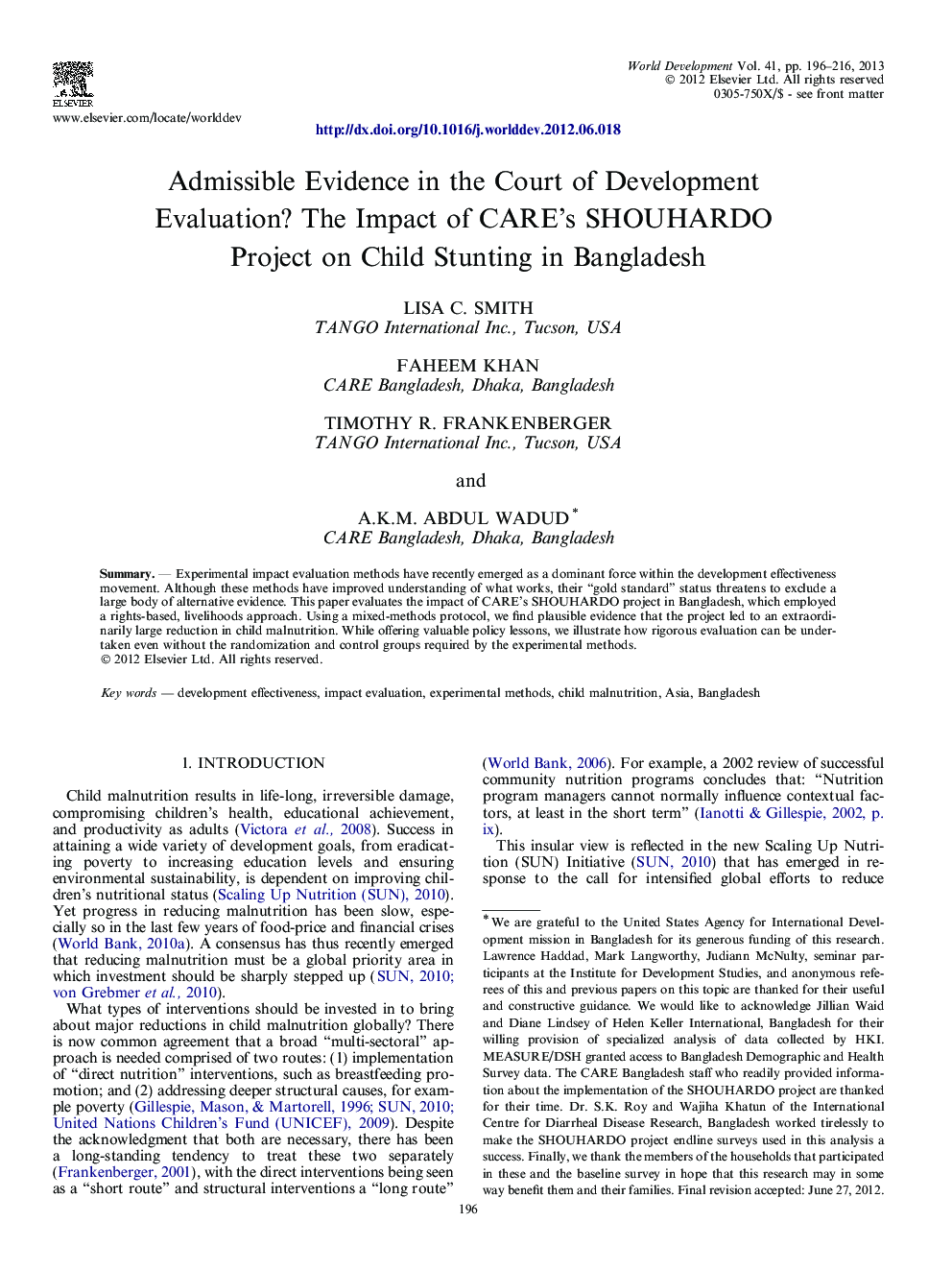| Article ID | Journal | Published Year | Pages | File Type |
|---|---|---|---|---|
| 991461 | World Development | 2013 | 21 Pages |
Abstract
SummaryExperimental impact evaluation methods have recently emerged as a dominant force within the development effectiveness movement. Although these methods have improved understanding of what works, their “gold standard” status threatens to exclude a large body of alternative evidence. This paper evaluates the impact of CARE’s SHOUHARDO project in Bangladesh, which employed a rights-based, livelihoods approach. Using a mixed-methods protocol, we find plausible evidence that the project led to an extraordinarily large reduction in child malnutrition. While offering valuable policy lessons, we illustrate how rigorous evaluation can be undertaken even without the randomization and control groups required by the experimental methods.
Related Topics
Social Sciences and Humanities
Economics, Econometrics and Finance
Economics and Econometrics
Authors
Lisa C. Smith, Faheem Khan, Timothy R. Frankenberger, A.K.M. Abdul Wadud,
